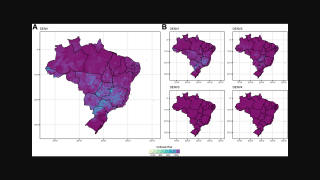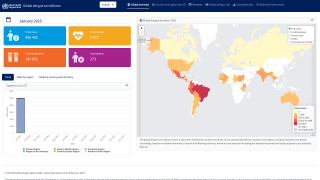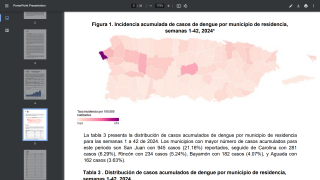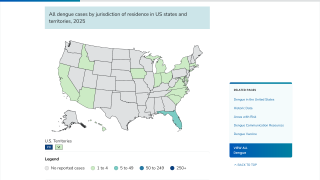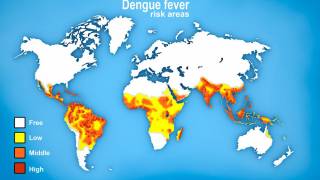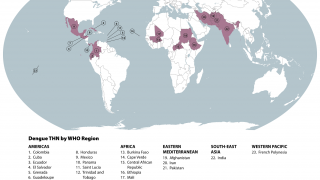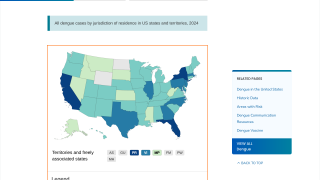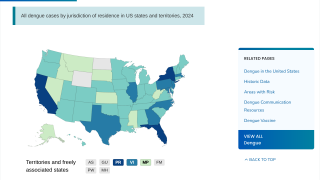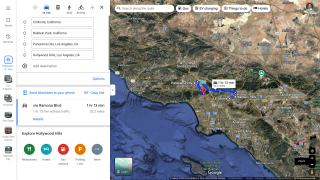The Philippines Requests National Dengue Epidemic Declaration

The Philippines Department of Health (DOH) requested the declaration of a national dengue epidemic in the wake of 146,062 cases recorded in 2019.
Furthermore, there have been 622 dengue-related fatalities as of July 20. 2019.
“It is important that a national epidemic be declared in these areas to identify where a localized response is needed, and to enable the local government units to use their ‘Quick Response Fund’ to address the epidemic situation,” said Health Secretary Francisco T. Duque III, in an August 6, 2019, press release.
“This is the first time we’re declaring a national alert.”
As of July 19, 2019, the Philippines National Disaster Risk Reduction Management Council issued a ‘Code Blue’ alert regarding the dengue fever virus outbreak in the Philippines.
A Code-Blue alert means that 50 percent of available health resources are mobilized to augment existing regular day-to-day resources in the Philippines.
Meanwhile, the total number of dengue cases reported for the 29th Morbidity Week (July 14-20) was 10,502.
This is 71 percent higher compared to the same period in 2018.
Based on the Philippines DOH Dengue Surveillance Report, the most dengue cases have been reported by:
- Region VI (Western Visayas) had the most number of cases at 23,330
- Region IV-A (CALABARZON) with 16,515
- Region IX (Zamboanga Peninsula) with 12,317
- Region X (Northern Mindanao) with 11,455
- Region XII (SOCCSKSARGEN) with 11,083 cases
The good news is the Philippines DOH is taking action to confront this expanding outbreak.
As of August 7th, the DOH together with other government agencies, are conducting the ‘Sabayang 4-O’clock Habit para Deng-Get Out program’, which focuses on destroying mosquito breeding sites.
Previously, on August 2nd, news reports indicated the Philippines DOH is considering relaunching the dengue vaccine Dengvaxia.
If the Philippines government decides to revive the use of the Dengvaxia vaccine, it would be administered with “utmost caution”, said presidential spokesman Salvador Panelo, as reported by Reuters on August 2, 2019.
“If Dengvaxia is proven effective to those who already had dengue in the past, then its application to these individuals will surely cause the decline of the overall number of cases,” Panelo told reporters.
This is an important announcement since the Food and Drug Administration says ‘there is no cure for dengue disease.’
In the USA, Dengvaxia became the first vaccine approved in the USA in May 2019 for the prevention of dengue disease in people ages 9 through 16, who have laboratory-confirmed previous dengue infection, and who live in endemic areas caused by all dengue virus serotypes.
Dengvaxia is a live, attenuated vaccine that is administered as 3 separate injections, with the initial dose followed by 2 additional shots given six and twelve months later.
The U.S. Centers for Disease Control and Prevention (CDC) says although dengue cases are rare in the continental USA, the disease is regularly found in American Samoa, Puerto Rico, Guam, the U.S. Virgin Islands, as well as Latin America, Southeast Asia, and the Pacific Islands.
During 2019, there have been 215 dengue cases reported in the USA, led by the states of California, Florida, and New York, as of August 7th.
And in Mexico, severe dengue has been related to 150 fatalities, according to the Pan American Health Organization data on August 10, 2019.
The CDC says to inform your healthcare provider if you have dengue symptoms or live in or have recently traveled to an area with risk of dengue.
A blood test is the only way to confirm a dengue diagnosis.
Regarding health risks to Philippines visitors, the CDC suggested on July 15, 2019, that visitors to the Philippines are current with certain vaccines, such as Routine Vaccines and the measles-mumps-rubella (MMR) vaccine.
The Philippines is included in the CDC’s Global Measles Outbreak Notice, issued on June 10, 2019.
Pre-departure vaccination services, related travel medications, and counseling appointments can be scheduled with a local pharmacy by visiting Vax-Before-Travel.
Additional financial support programs can be found at Vaccine Discounts.
Vaccines, like any medicine, can cause side effects. You are encouraged to report vaccine side effects to your healthcare provider or the CDC.
Our Trust Standards: Medical Advisory Committee






